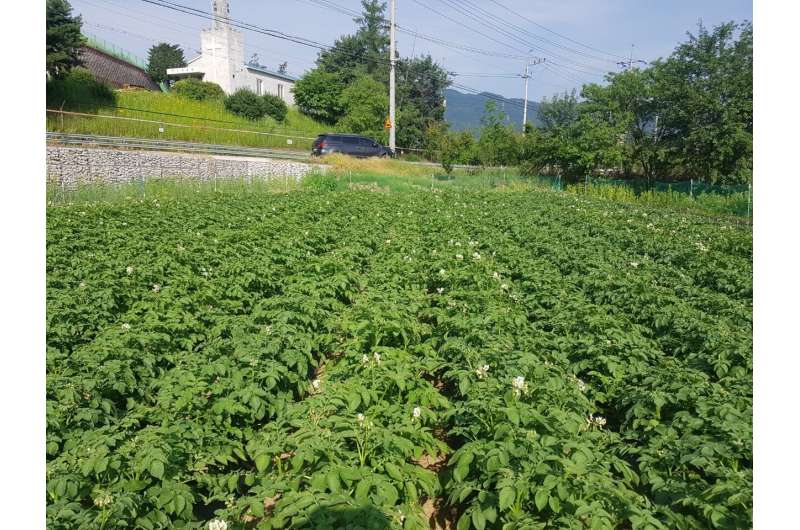This article has been reviewed according to Science X's editorial process and policies. Editors have highlighted the following attributes while ensuring the content's credibility:
fact-checked
proofread
How climate change affects potato cultivation in South Korea

A study published in the journal Potato Research presents results on the response of spring and summer potatoes to climate change in South Korea. The study, conducted by scientists from the Leibniz Center for Agricultural Landscape Research (ZALF) and the Brandenburg University of Technology Cottbus, investigates the effects of global warming on the potato crop and presents adaptation strategies.
"Our results show that the CO2 fertilization effect can offset the negative effects of rising temperatures and increase yields of spring potatoes by up to 60% if planting times are adjusted," explains Dr. Yean-Uk Kim, main author of the study and scientist at ZALF. The CO2 fertilization effect describes the phenomenon that higher CO2 concentrations in the atmosphere can improve the photosynthetic performance of plants, leading to faster growth and higher yields.
Climate-resilient potato varieties as a solution for the future
Research shows that earlier planting is recommended for spring potatoes under mild climate change conditions. Under more severe climate change conditions, the researchers suggest breeding heat-tolerant varieties as an adaptation strategy. For summer potatoes, the focus would be on increasing tolerance to high temperatures, regardless of the climate scenario.
"Our results are important for developing long-term food security strategies and sustainable agricultural practices in the region," Kim says. "This is an example of how combinations of agricultural and climate models can contribute to the development of effective regional adaptation strategies."
As a next step, the researchers are investigating how increasing extreme weather events, which were not included in the current study, will affect agricultural production to better understand the difficulties that farmers face due to climate change and provide more effective adaptation strategies.
More information: Yean-Uk Kim et al, Contrasting Responses of Spring and Summer Potato to Climate Change in South Korea, Potato Research (2024). DOI: 10.1007/s11540-024-09691-7
Provided by Leibniz-Zentrum für Agrarlandschaftsforschung (ZALF) e.V.





















